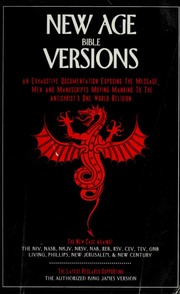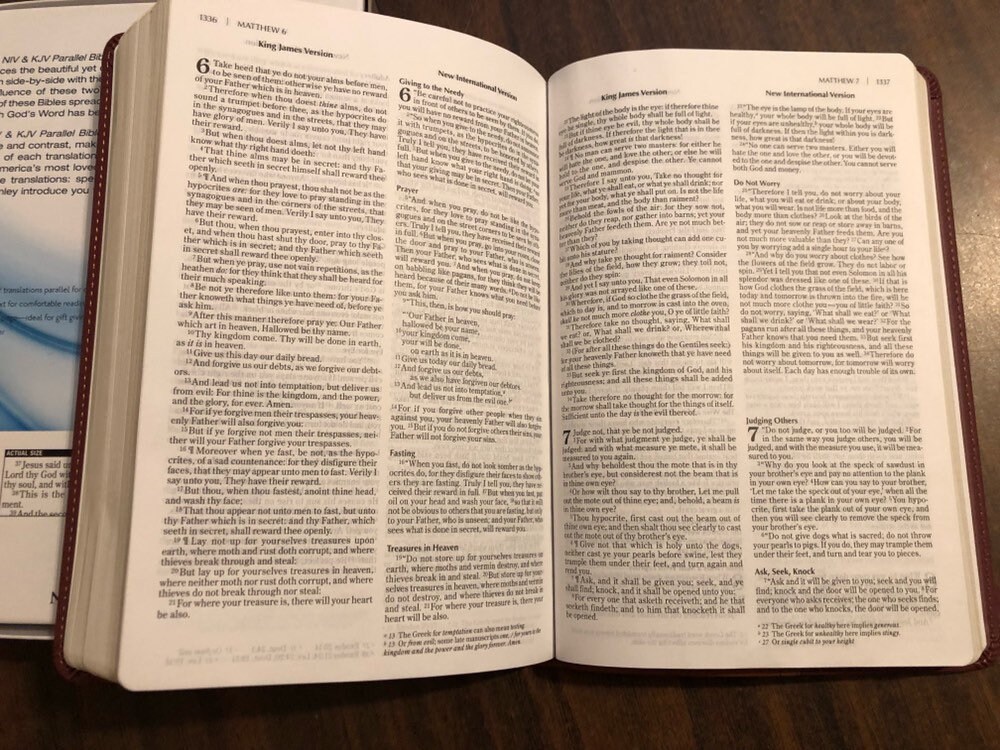QuestionGuy
Member
Hi, folks! I forgot to ask. Is there a specific translation of the Bible that I should buy? Or does it not matter? Any and all suggestions are welcome!

Join For His Glory for a discussion on how
https://christianforums.net/threads/a-vessel-of-honor.110278/

https://christianforums.net/threads/psalm-70-1-save-me-o-god-lord-help-me-now.108509/


Read through the following study by Tenchi for more on this topic
https://christianforums.net/threads/without-the-holy-spirit-we-can-do-nothing.109419/


Join Sola Scriptura for a discussion on the subject
https://christianforums.net/threads/anointed-preaching-teaching.109331/#post-1912042
Strengthening families through biblical principles.
Focus on the Family addresses the use of biblical principles in parenting and marriage to strengthen the family.
Read daily articles from Focus on the Family in the Marriage and Parenting Resources forum.
Is there a specific translation of the Bible that I should buy?

I highly recommend the ESV, especially an ESV Study Bible.Hi, folks! I forgot to ask. Is there a specific translation of the Bible that I should buy? Or does it not matter? Any and all suggestions are welcome!
Thank you for the suggestion.I'm a user of the 1611, and a facsimile which includes the Apocrypha, giving me 80 books vs 66
If you want to know more this is a great resource to start

New Age Bible Versions : Gail Riplinger : Free Download, Borrow, and Streaming : Internet Archive
Bible translationsarchive.org
But I warn, it gets much deeper
Thank you for the suggestion.I highly recommend the ESV, especially an ESV Study Bible.
https://www.amazon.com/ESV-Study-Bible-Large-Print/dp/143354413X/ref=mp_s_a_1_2_sspa?crid=1X5SQMXRUZQ9Z&keywords=esv+study+bible&qid=1706930291&sprefix=esv+s,aps,150&sr=8-2-spons&sp_csd=d2lkZ2V0TmFtZT1zcF9waG9uZV9zZWFyY2hfYXRm&psc=1
Or, if you want digital, get eSword. It’s free and comes with the ESV, with apps for mobile devices and computers.
Hello QuestionGuy, How are you? The Open Bible: King James Version ISBN # 9780718018115 HardbackHi, folks! I forgot to ask. Is there a specific translation of the Bible that I should buy? Or does it not matter? Any and all suggestions are welcome!

Thank you very much. That helped greatly.My favorite translation is the NKJV (New King James Version) but I prefer not to limit myself to just one translation. Others that I like are ESV (English Standard Version), NIV (New International Version), and KJV (King James Version).
One reason I like to use different translations is because when translating from one language to another, it really comes down to how the translators decide is the most accurate result. For example, if you give four people a phrase in English and ask them to translate the phrase into another language, you'll probably get four different results. This is because languages rarely translate word for word but instead it's a thought for thought translation and so there are many factors that come into play. Notice I said translators in plural. This is because none of the translations I mention were completed by any one single individual but all were completed using a team of Biblical scholars, theologians, and laypeople. I believe this is important for the sake of validity.
Another reason I like to use more than one translation is because over time there have been additional resources to work from. In fact, I do not believe there exists today an actual original transcript from the original authors of any of the Biblical text. What we do have are copies of those and over the years more have been discovered that can affect interpretation. The number of resources available when the KJV was translated were far less than what we have today so some of the newer translations provide additional information.
And another reason is readability. For example, while the KJV has a certain poetic charm, we no longer use Elizabethan English such as they did when the KJV was translated. Words have taken on different meanings over the centuries and newer translations can account for this.
Hope this helps.
Very interesting. Thank you!I would recommend a parallel Bible .That is 2 translations in one binding. That way you can see the difference a translation can make .
I have a KJV / NIV parallel bible , here is a photo of what one looks like .

Buy what ever version your church uses, for personal study use any of the online bibles as they all will let you check out the various translation.Hi, folks! I forgot to ask. Is there a specific translation of the Bible that I should buy? Or does it not matter? Any and all suggestions are welcome!
My favorite is the New American Standard 1995. It was a decent update from the 1972 version. I also like the Tree of Life Version, which is a Messianic edition and uses Hebrew names and phrases rather than Greek.Hi, folks! I forgot to ask. Is there a specific translation of the Bible that I should buy? Or does it not matter? Any and all suggestions are welcome!
Hi, folks! I forgot to ask. Is there a specific translation of the Bible that I should buy? Or does it not matter? Any and all suggestions are welcome!
There is something about the repeatability of it's method that keeps me reading the KJV. And when I want another take, I am very often surprised at how revealing "The Message" bible can be.Hi, folks! I forgot to ask. Is there a specific translation of the Bible that I should buy? Or does it not matter? Any and all suggestions are welcome!
I would recommend a parallel Bible .

I believe weighing readability with accuracy my answer is the NIV. I look at more than one in a debate such as the NSRV and NET bible. When translating Koine Greek to modern english a word for word translation is not the same as a meaning to meaning translation. Example Hebrews 1:2 ...through whom He also made the ages vs through whom He also made the universe or worlds.Hi, folks! I forgot to ask. Is there a specific translation of the Bible that I should buy? Or does it not matter? Any and all suggestions are welcome!